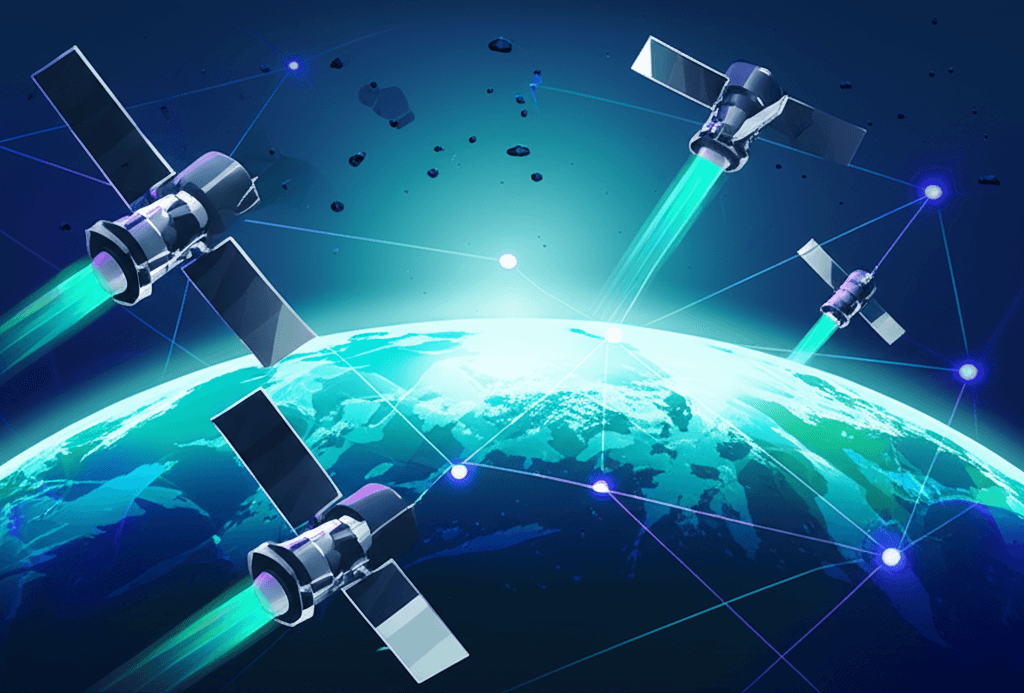Manastu Space Secures $3M to Advance AI for Sustainable Space Operations
Manastu Space's $3M boost pioneers green propulsion and AI-powered solutions for sustainable, debris-free space operations.
August 13, 2025

In a significant boost for India's burgeoning private space technology sector, Mumbai-based startup Manastu Space has successfully raised $3 million in an extended Series A funding round. The investment was led by venture capital firm Capital-A, with participation from existing investors including Capital 2B, Indian Angel Network (IAN), E2MC, the Bhagnani family office, and other angel investors. The fresh infusion of capital is earmarked for the commercial rollout of the company's innovative green propulsion system and its sophisticated debris-avoidance solutions, technologies aimed at making space activities more sustainable and safer. This funding round underscores a growing investor confidence in sustainable space technologies and highlights the critical role of artificial intelligence in the future of orbital operations.
Founded in 2017 by IIT Bombay alumni Tushar Jadhav and Ashtesh Kumar, Manastu Space is at the forefront of developing solutions to two of the most pressing challenges in the space industry: the reliance on highly toxic propellant and the growing threat of space debris.[1][2] For decades, satellites have predominantly used hydrazine for propulsion, a fuel that is not only carcinogenic and highly toxic but also expensive to handle due to stringent safety requirements.[3][4] Manastu's proprietary green propulsion system offers a safer, more efficient, and cost-effective alternative. The company has developed a novel fuel, MS-289, which is a blend of hydrogen peroxide with additives, and a unique high-temperature catalyst to combust it.[5][6] This system is touted to deliver 50% higher performance and reduce operational costs associated with fuel handling and transportation by 60%.[7]
The urgency for such innovations is underscored by the escalating problem of space debris. With millions of fragments of defunct satellites and rocket stages orbiting the Earth at high velocities, the risk of catastrophic collisions that could cripple active satellites and endanger future space missions is a growing concern.[3][8] Manastu's technology directly addresses this by providing satellites with enhanced maneuverability to dodge orbital debris.[9] The company has already successfully test-fired its VYOM 2U green propulsion system in space aboard a PSLV C-60 rocket in December of the previous year, achieving a Technology Readiness Level (TRL) of 8, which signifies a flight-tested system.[1][10][3] The new funding will help advance the technology to TRL-9, indicating its proven capability for long-term space operations.[3]
A crucial aspect of Manastu's strategy, and one with significant implications for the artificial intelligence industry, is its development of an autonomous collision avoidance system.[3][11] Co-founder and CTO Ashtesh Kumar has explicitly stated the company is working on "autonomous collision avoidance and satellite refuelling in space so that we can reuse the satellites."[3][11] This move towards autonomy is where AI becomes indispensable. AI and machine learning algorithms are essential for enabling real-time trajectory planning, adaptive thrust management, and predictive fuel diagnostics.[1] In the unforgiving environment of space, where communication delays with ground control can be significant, AI-powered systems can autonomously detect potential collisions, analyze vast amounts of data from space situational awareness systems, and execute precise maneuvers to avert disaster.[10][5] The development of such intelligent systems is critical for the management of large satellite constellations and for ensuring the long-term sustainability of the space ecosystem.[1] This positions Manastu not just as a hardware provider but as a key player in the development of intelligent space infrastructure.
The investment from Capital-A, a venture capital fund with a focus on manufacturing, deep tech, and climate tech, is a strong vote of confidence in Manastu's vision.[7] Ankit Kedia, founder and lead investor at Capital-A, highlighted Manastu's practical and scalable solution to a specific industry challenge as a key factor in their decision to invest.[11] Kedia, who comes from a background in the manufacturing industry, has expressed a keen interest in leveraging technology to build a "home-grown Silicon Valley" for manufacturing in India and sees significant opportunities in deep tech sectors like space.[12][6][13] This investment marks Capital-A's first foray into the space sector, signaling a belief in the significant growth potential of India's private space industry, which is projected to reach $40 billion by 2040.[14][9] The Indian government has actively fostered this growth through initiatives like the Indian National Space Promotion and Authorisation Centre (IN-SPACe) and liberalized foreign direct investment policies.[14][2]
In conclusion, Manastu Space's successful $3 million funding round is a pivotal moment for the company and a testament to the increasing global demand for sustainable space technologies. By tackling the dual threats of toxic propellants and space debris, Manastu is poised to make a significant impact on the space industry. The company's focus on developing autonomous collision avoidance systems places it squarely at the intersection of space technology and artificial intelligence, paving the way for a future where AI-driven systems ensure the safety and longevity of our vital orbital assets. This investment will not only accelerate the commercialization of Manastu's groundbreaking technologies but also contribute to the continued growth and maturation of India's dynamic private space ecosystem.